|
Part of becoming a writer is learning to trust your own writing process. And it’s a lot harder than it sounds, because in order to trust your writing process, you have to be able to identify your writing process, and in order to identify your writing process, you have to have done enough writing to have a writing process to examine. You also have to know enough about writing, and OTHER writing processes to say, this is me, this is not me, this is how I work, this does not work for me. AND you have to have enough confidence, when faced with things that don’t work, to be able to say, this doesn’t work for me but that doesn’t mean i’m a failure. Becoming a writer means you have to write, even when you don’t know what you’re doing. You have to write enough words, you have to sit down in front of the page long enough, without being sure, in order for you to become sure. And no one else can give you that confidence, not commenters, not teachers, not other writers, not your mom, not an audience. It has to come from within you, partly because, as a writer, you’re at that page alone, and partly because sooner or later, the external validation will end, or will be challenged by critics. So here you are, writing in the dark, not knowing what you’re doing, what your process is or even what a writing process IS, being afraid of what you’re doing, what it means about who you are and your abilities and whether you even have the right to write anyway, but you just keep going. You write and write and write until you get a glimmer of who you are as a writer, and what works for you, and you follow that light, and say, “yes, this is me, this is what works for me.” And you keep writing like that until you come up against some new struggle or new victory and you learn, “ah ha, this doesn’t work for me but this does.” And the picture of who you are as a writer expands. And you get more freedom as you write and grow more confidence as you figure out who you are and how you deal with the inevitable struggles of writing your story. And then one day, you look up and realize, “hey, I know how to do this. I may not know precisely how I’m going to get there, but I know that I will be able to figure it out, because I trust myself to work through the process and it will get me where I need to go.” Or not. Maybe you’re the kind of person who just sits down and goes and never has a moment of doubt. Or maybe you self medicate your doubt with drink or drugs. Or maybe you have a strict daily schedule of writing words that leaves no time for doubt. Or maybe your parents taught you that you can do anything and you are, in fact, the master of the universe. Whatever it is, you have to believe you can write and trust yourself to do it, and then. Just do it. originally posted on rosy-writes
0 Comments
originally posted on tumblr
anonymous asked: Hey Rosy, I really appreciate your meta and your interpretations on The 100 and I also know that you are an English major, so I'd like to ask you something more technical. I'm writing a book and I have several characters with a POV and I originally planned to do it like ASOFAI - a chapter, a POV. But I feel like in action sequences I'm kind of missing out on action if a keep sticking to one person's view, especially if several POC characters are involved in the scene and live through very different obstacles. So I tend to switch several times between POV’s in the chapter but I can’t do that, can I? I don’t remember how this is handled in other books but do you have any advise on how to solve this. The main part of the book is already written with POV’s switched per chapter, there are only a few scenes where I switch more often, so it would seem a little overkill to rewrite the whole book. Do you have any advice? xx For clarity’s sake, I am not an english major. I got my BA degree in english with a concentration in creative writing, but that was over 25 years ago. I was also an english teacher, but that was 15 years ago. I am a bit rusty on the rules everyone tells you to follow because I don’t follow rules anymore. I have, however, internalized a lot of them. Because I’ve been writing for decades now and so I’m just going to talk about the thoughts I have on your problem. (okay too late because i did a google and now i’m refreshed. and apparently, omniscient pov is frowned on in publishing circles now. i did not know, although i get it, because close third is FAR more common.) BECAUSE IT IS A PROBLEM! Maybe other people have less of a problem with POV than I do, but it’s one of the major elements of my stories and novels that I struggle with. Because the whole story hangs on the perspective. Your perspective choice tells you what scenes you can tell, what information you can impart, the feel of the whole thing, the intimacy, the control you have over the story, etc. Once you make your decision, you can go from there and just follow through with it, but it’s a big decision. I’m not really the person to come to if you think changing your POV for your whole story is too much of a commitment, because I did just that this december, switching a first person novel to close third person in about 3 weeks. (do not recommend. ) YES. One POV definitely limits your story. However, it also makes it more intimate because you’re seeing it from inside of your character’s perspective. You see what they see? Think what they think. Feel what they feel. And this can help the audience relate more closely. Apparently omniscient pov is very hard to get right. It’s easy to fall into just skipping from head to head, giving the povs of various characters… and that not only can get confusing, but it can also make your audience trust you less. They want to be able to follow you, and if you want to do omniscient and be an objective reporter of the story, then you need to make sure you as a writer and narrator remember your role as objective reporter. Hmm. You might even consider it another character… I wonder if that would help to clarify for yourself your position as omniscient narrator. You could be god, or a historian, or someone’s child, or an alien watching from above, or an oak tree… I don’t know. Just spit balling. Anyway, your problem is that you chose a narrator. Alternating close third person where you use one POV for each chapter. I don’t think that’s a bad POV to use. You’ve got an example with ASOIAF. I myself like to write in alternating close third person. BUT it does dictate your story. I remember one story where people asked me to add the other POV into it… and I said no, because the whole story hung on the POV character NOT knowing what was going on in the other character’s head. To add his POV would make the audience aware of his motivations, and that would change the way they looked at the main character and her choices, and it would weaken the story, which was about HER feelings and confusion. I couldn’t have the confusion being clarified. Now, I COULD have told a different story and worked with the dramatic irony of the audience knowing what was happening in the story while the characters did not. That would have been an entirely different story though, focusing not on the individual character’s journey, but on the miscommunication and the tension of watching them fail to break through the confusion that we see so clearly. So, here’s the thing. Your choice of POV is part of what tells your story. I don’t think you should go back and change your story to omniscient, just so you can tell a rousing battle tale as if you were a camera drone, catching all the action… and no. You can’t switch between multiple POVs in one chapter. And you especially can’t do it in one scene. You’ve committed to alternating close third. You can’t pull that rug out from under your reader now. So lets consider how we can work your current choices into the new scene.
Sometimes limitations are not the drawback we think they are. They can push us to go deeper, to stay focused, to try something new. ask me questions here buy the image on a poster or tshirt or mug here What exactly IS voice?
I mean, everyone has a voice, right? You use it to speak. Or if we’re talking writing, that’s… what you write with? No, those are words. Voice is the sound that comes out of your mouth when you speak, so with writing? It can’t be that. It’s got to be something different. It is. Your voice as a writer is a combination of who you are, where you are from, your life experiences, your view on the world, your philosophy, your tastes, a mishmash of every book you ever loved and some of the ones you hated, your hopes and dreams and also your fears and the things you run from. Your voice is your style, how casual you are, the kid you were as an awkward preteen, the nagging that your mom did again and again, that great essay you wrote in high school that got you an A, the trust you have in yourself, that dream you woke up screaming from last night. Your voice is your word choice, and your POV preference. It’s your genre and your character development. It’s whether you have a happy ending, a bittersweet one or a tragedy. Your writing voice is everything about you as a writer— as a person. Because the writer that you are is entirely a product of the person you are. Your insecurities will show and so will your pride. Your grandmother’s first language is going to pop up, and all those curses you wanted to throw at that jackass who was the worst person in your life. Your writing voice is the colors of your life, painted on the page. It is the you-est part of you…. And it isn’t you at all. It’s the you that you let go of, because it’s separate once it hits the page. It’s the you of your dreams and your horrors that you just want to exorcise. It’s the you that once it’s down and in black and white, is now a thing outside of you that you can look at and edit out and also turn into oh… someone else. Someone you can make into a hero or a villain. It’s also the freight train barreling down the tracks headed for disaster and the hope of a blue dawn at the end. Your voice is where you come from and where you’re going. It is naturally who you are, and the way you present yourself on the page, when you are not even TALKING about yourself. And it is also a constructed and sculpted form of yourself, the very worst and the very best, the most alien, the difference, the part of you that you have picked apart to reform. Your Frankenstein’s monster. Your voice is you as a writer. As a story. As the characters and the plot and the dilemmas and the deus ex machina. Your writer’s voice is god. It’s amazing. However, it can be very hard to figure out what your writer’s voice is, and it can be even harder to learn how to have faith in your writer’s voice and just write from a place of honesty, because you learn to trust yourself as a writer, as a human being and as a soul to be worthy of the words. Worthy of the story. Worthy of the audience. Worthy of being heard. But you are. Every single one of us is worthy of being heard. And every single one of us has a voice that is valid and important and has heartbreaking or tragic or lovely or hysterical stories to tell. get the full series by becoming a patron at patreon. just 1$ a month for a whole month of Finding Your Voice. Other series to follow. I've been thinking about voice lately, and what it means to know your own writing voice, partly because I've been talking with a few younger writers who are still trying to figure out who they are.
And it struck me. I may not always be able to DESCRIBE my writing voice, but I know it, I am comfortable with it, and I trust it, and this confidence in my writer's voice is part of why I am able to write with the facility and ease that I do. It's NOT easy. I'm not saying that at all. It's a journey, a process, and It's taken me a long time to get to the point where I am able to be as comfortable as I am with my own writing, and myself. As I tried to explain to my young writer friends what a writing voice was, I realized that a lot of what I have done, as a person, a writer, and a teacher, is to explore voice and identity. This is actually the purpose of a lot of my work. To empower people to find their own voice, to be able to tell their own stories. Between writing stories, working on self esteem, teaching English and Humanities and art, and working on my own creative process, I've dealt with a lot of these exact issues. And they are all tied together. And it's not at all just about writing stories or comparing yourself to other writers or taking classes or tricks with technical facility. I'm not looking to teach people how to write. I'm looking to help people discover who they are, what they have to say and how to say it in the most authentic way possible. So I've decided to do a series of posts talking about the writing voice, what it is, how you find it, how you learn to trust it, and how you can use your own voice to become a better and more confident writer. This is not about writing techniques. This is about writing process and understanding your own identity. The full series will be posted on my patreon account at the 1$ level. I'll keep you up to date here on what I'm up to and will crosspost a few to share. Eventually I'd like to turn this into an ebook, but for now, it will be regular short posts about voice with some exercises and insight into how identity works with our writing process. anonymous asked:
TFW you're subscribed to like 1,000 stories on AO3 and none of them ever seem to update. :( Sigh. I guess I could go back to continuing my WIPs, but reading seems easier right now because I'm not exactly sure what to do next in the stories. Maybe just sitting in front of the blank screen and seeing what comes will help. Where have you been pulling inspiration from lately, Rosy? #FandomProblems I have a similar problem. My fics are languishing and my original… well no, I started a new novel because I wanted to tell the story. So I did start. Where do I get my inspiration from? I have to figure that out because my inspiration isn’t flowing for me lately. I will say that when you want to write, inspiration isn’t always the most important thing. One of the things I’ve noticed in my long (LONG) time writing, is that if you show up to the page, consistently, even without inspiration, the words DO come. Building a habit, a writing routine, gets your being primed to be creative. If you sit down at a regular time and start writing, your brain gets ready before you even start. You can also add in some other sensory inputs to inform your brain that it’s writing time. A cup of coffee, a certain music, a scent like incense or room spray. Sitting down in your chair. A few times, I even tried wearing a hat. It almost felt like it was keeping my thoughts in. Another thing to do is to go back over your old works. Those languishing WIPs you have? Pick one. Read it. Start living in that world. When you get to the end of it. Continue it. Sometimes in order to finish an old work, I just have to remember what it was to me. If you have an idea for something new percolating just under the skin and you want to write it but you don’t know what it is or how to start it? Nows the time to mess around with the ideas. Take out a notebook… paper and pen even, and start writing about the character. What does she want? What’s blocking that? If she gets what she wants is it good or bad? Where does she come from? What is her history? Take notes. Start a pinterest board. Make a family tree. Research her specific interest. Think about her life, the characters she will meet in your story. Get invested in the character. Let that character guide your inspiration. Another thing, sometimes I do, when I want to write but my idea just isn’t inspiring me? I figure my idea is missing something. So I dig around in my brain and find another, unrelated idea, and smash it together with the old idea. This creates a frisson, a tension, where excitement generates. There are questions. The unexpected happens. This is why fanfiction works. You take your fandom characters and go BUT WAIT! Let’s put them into a…. SUBMARINE! with an ALIEN APOCALYPSE!!! …. and a TRAITOR IN THEIR MIDST!!!! or I don’t know. What ever floats your boat. Or U boat as the case may be. ;) I mean, that’s the purpose of prompts, isn’t it? And i will admit that sometimes when I get fic prompts, they aren’t enough to generate excitement for me and I have to stuff two or three prompts into a story. I used to have a HUGE problem coming up with stories, but when I discovered this trick of incorporating multiple disparate ideas into one story, then it became easier for me to find ideas. Lack of inspiration can have many reasons, though, so it’s hard to come up with a prescription for WHY it’s not working. You have to figure out what it is. Maybe your brain has just fallen out of the habit of writing. So you have to build the habit up. Maybe you’re exhausted. Rest. Maybe you’re anxious and insecure about your ability… learn how to turn off your internal editor and JUST write. My suggestion is actually to force yourself to write, no matter what, for fifteen minutes. Set a timer. Just keep writing until it dings. No matter the doubts or confusion. And if it works? You are writing. If it doesn’t, you just wasted 15 minutes and lets be honest… you were gonna do that anyway on twitter, weren’t you? |
AuthorWonderer, wanderer, warrior. Been around for a while. Got some stuff going on. Should probably get back to blogging. I mean....I didn't go away, I was just talking about science fiction for a while. Archives
December 2020
Categories |
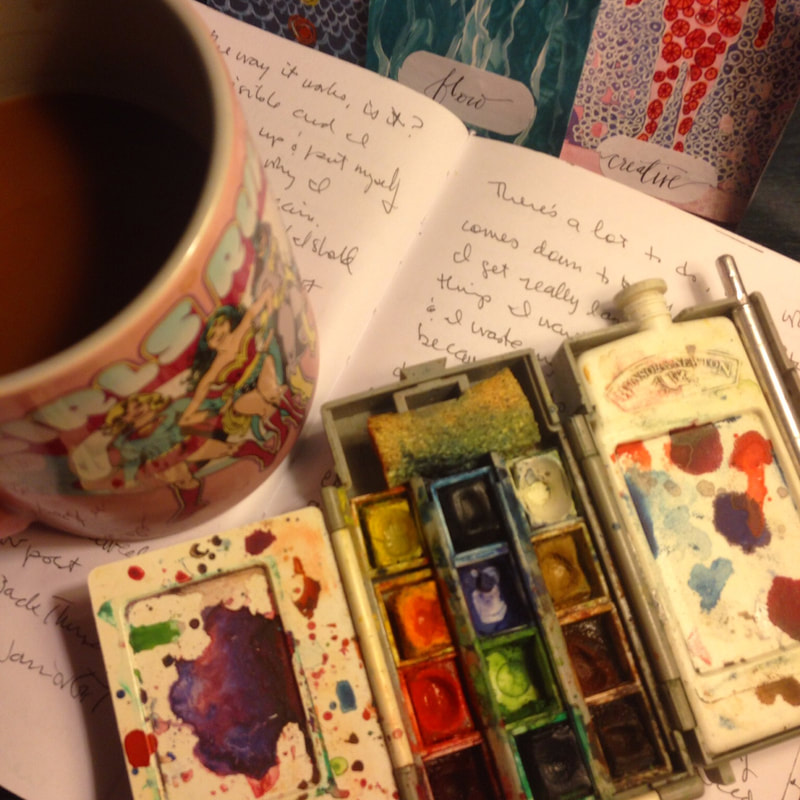
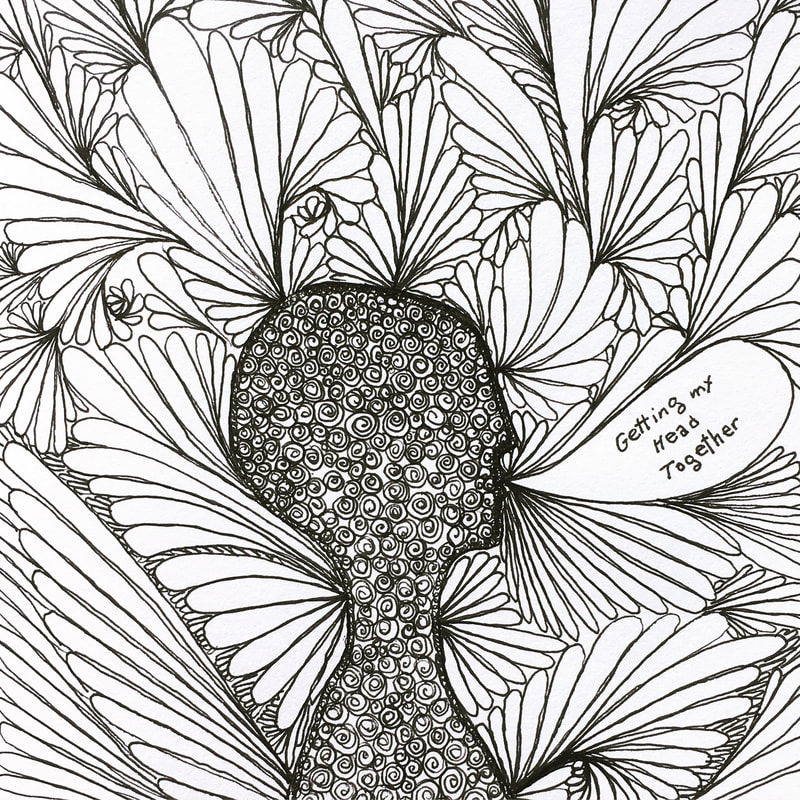
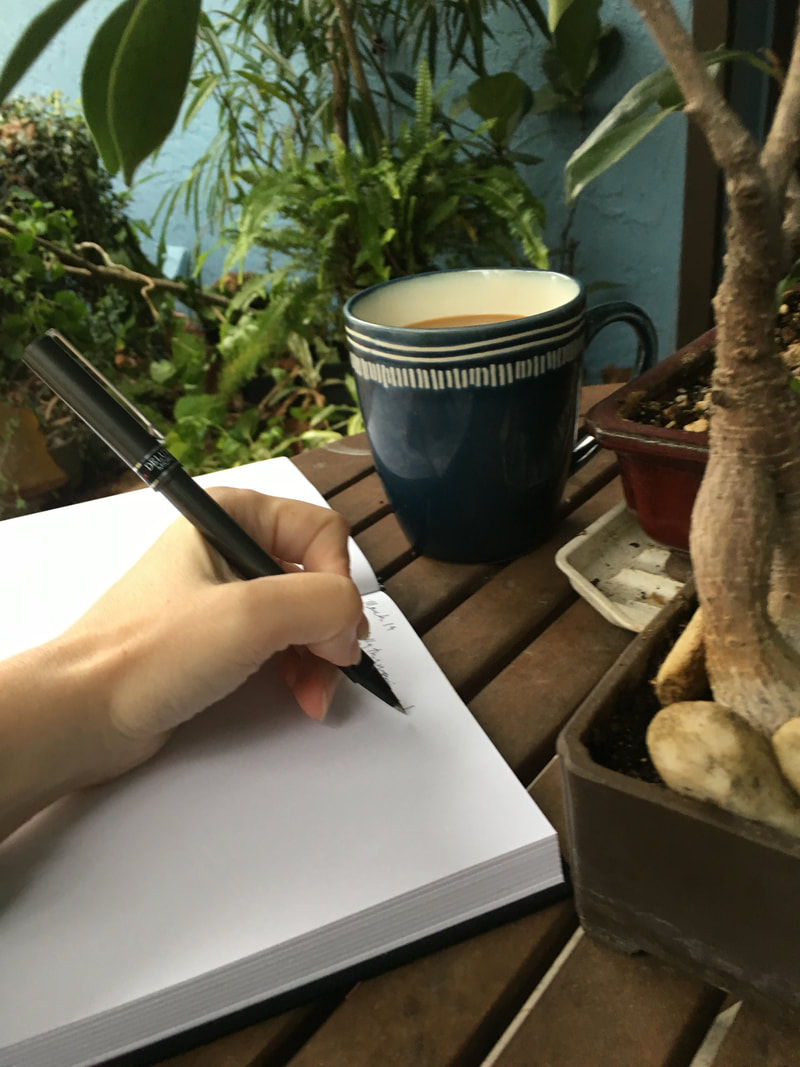
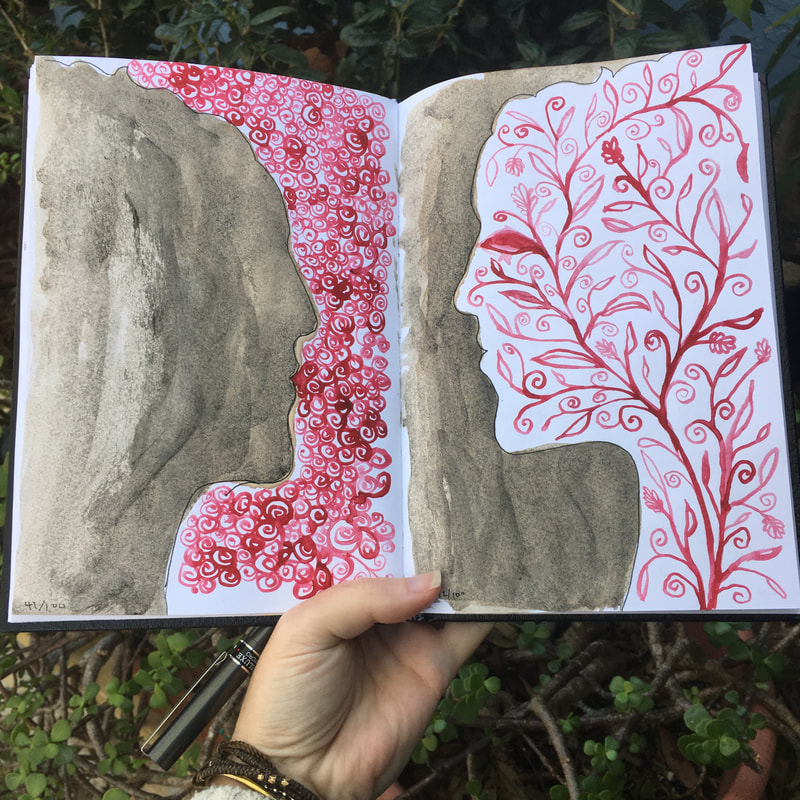
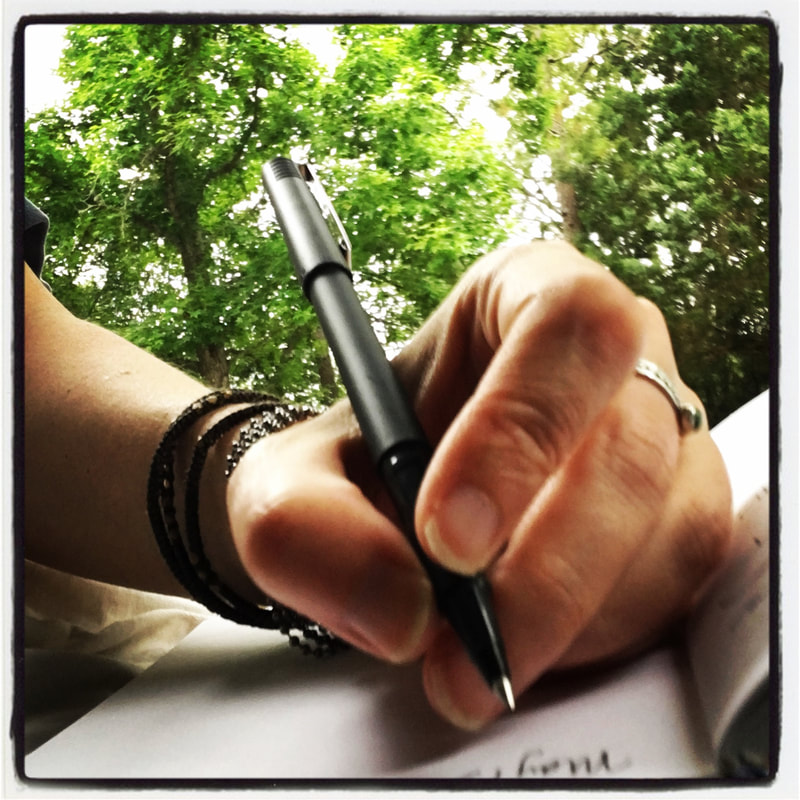
 RSS Feed
RSS Feed
